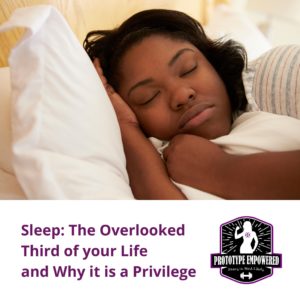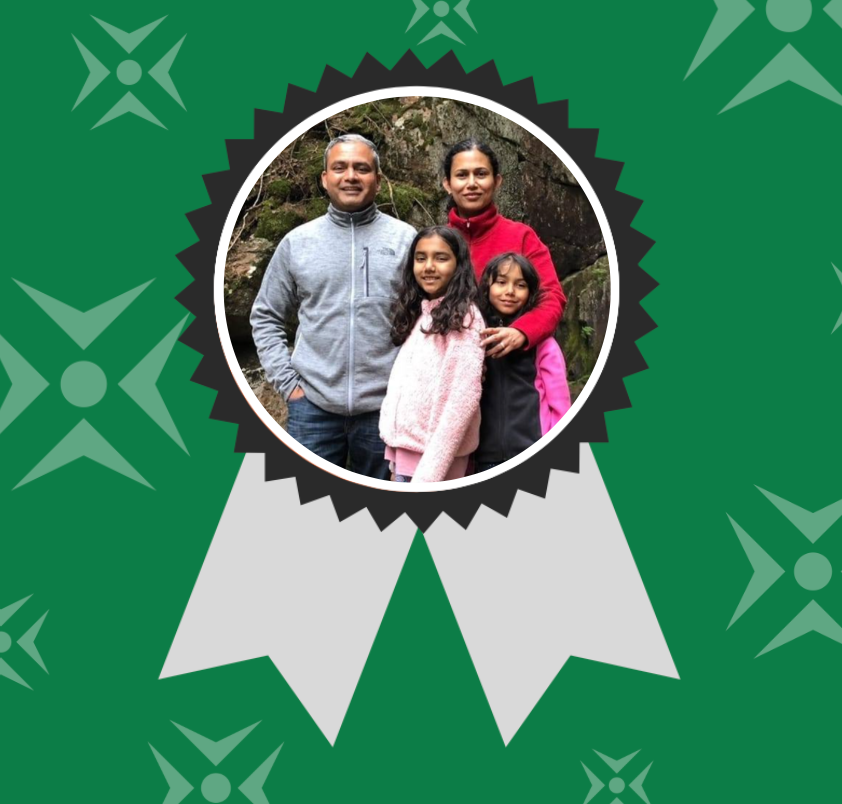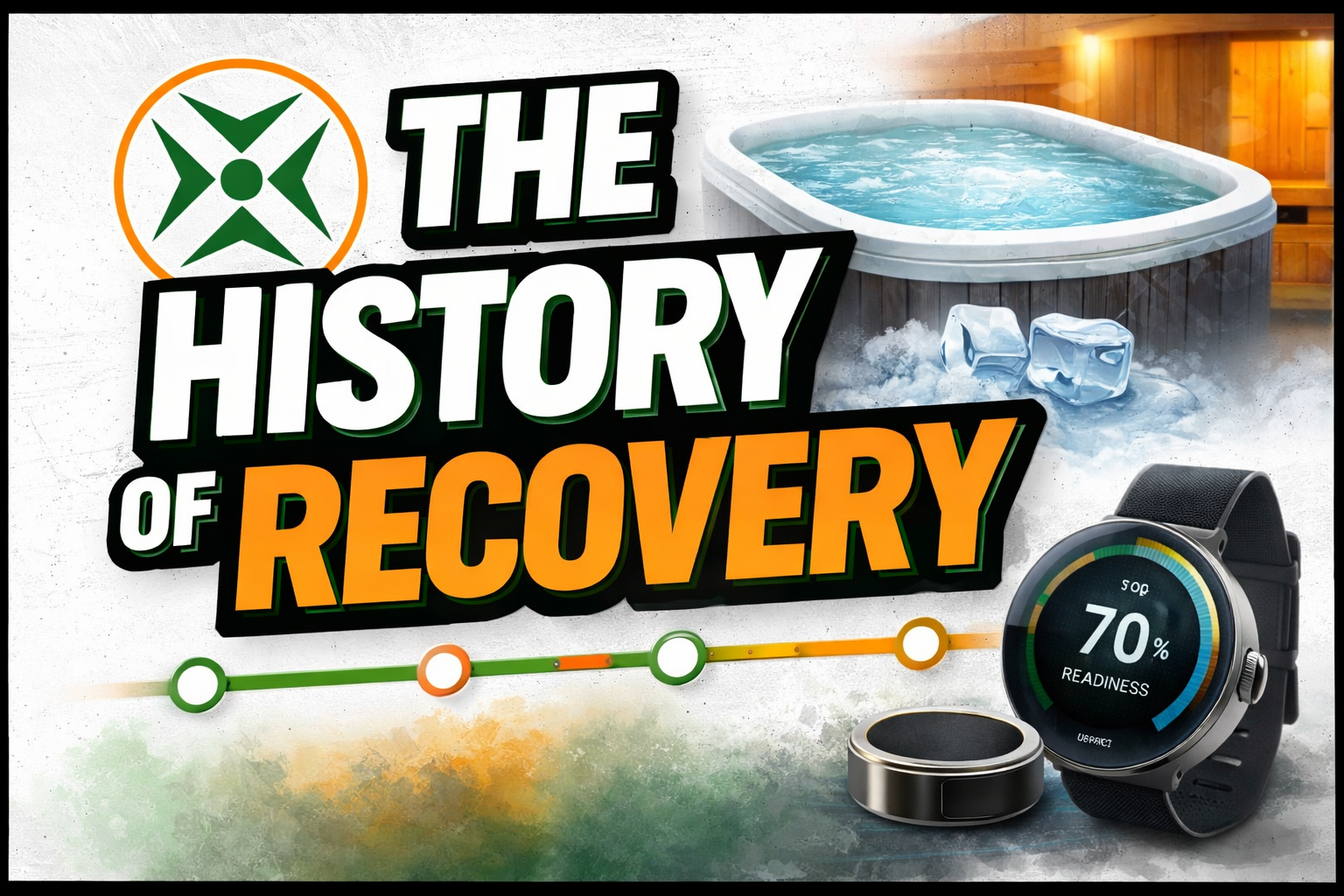The Overlooked Third of Your Life: Sleep as a Privilege
Mike Collette • August 17, 2020
By Leah Cottle (Hantman)

What if I told you I had a magic and singular solution for your life.
This solution would increase your performance, focus, fitness and health. It would also make life bigger, better and brighter. Sound too good to be true? Now, what if I told you there were zero negative side effects? The magic solution is 100% free, may even be enjoyable and you can access it right in your own home? Would you go for it? It sounds like a no brainer doesn’t it?
Sleep. THAT IS IT!
Often viewed as one of the most overlooked, underrated and controllable lifestyle factors. Did you know 40% of Americans are getting less than 7 hours of sleep a night. Half of that 40% is getting less than 5 a night. This means that many of us are living a less than optimal life and performing at a less than optimal level. Sleep is often not so controllable when the other areas of our life are out of balance.
On average we would spend one third of our life sleeping if we got the sleep we needed. Very few people actually get the recommended 7-8 hours a night. The consequences of chronic sleep deprivation can be tremendous.
Lack of sleep leads to higher incidences of poor immune function, stress, high blood pressure, relational and occupational strain, stroke, diabetes, depression and obesity
. You can cut your life short by not catching enough ZzZzZzzz’s.
Now, when we dissect these numbers a bit more we can see some scary disparities. There are stereotypes that assume women sleep more than men. Teens sleep more than adults and elderly sleep less than youth.
This divides us into neat little categories that fail to look at a wide range of socio-economic factors and backgrounds
.
When we look closer at racial and gender health statistics you will find that 60% of Black Americans and LGBTQ community report getting less than 5-6 hours of sleep a night
. Rates of depression are even higher. We see higher prevalence of health related co-morbidities in these marginalized populations which makes fitness and nutrition SO IMPORTANT.
Does this mean sleep is a public health issue? YES. Socio-economic background impacts our health in many ways. Sleep is often overlooked.
Those who face daily stressors, lower income, higher discrimination, lack of community, slim access to resources and have other health issues are more likely to have disturbed sleep patterns secondary to sleeping in less controlled environments
.
A lack of sleep creates a state of hyper-arousal that activates our sympathetic nervous system
.
This creates a fight, flight or freeze mechanism that leads to poor focus, poor decision making and impulsive behavior
. We are more likely to have food cravings, binge eat, drink, skip workouts and put off priorities. Add in socio-economic stress and this is a recipe for a health disaster.
My point? Sleep is a privilege that is important to every aspect of our health and wellness. It promotes health and emotional well being and helps us recover. It serves as a buffer to stress and helps us approach the day with a renewed sense of optimism.
Our community at Prototype is making efforts to become more inclusive and diverse. Our first step is learning more about the intersection of race and fitness/health.
As a community we can become more aware of ways to include a wide variety of populations. At Prototype we strive to look at the WHOLE person. This holistic approach doesn’t work if we fail to look at socio-economic factors. Many of you come to us for help with fitness or nutrition. We often see our clients have life changing experiences. They realize that wellness pervades so many other areas of their life!
The typical wellness recommendations for clients experiencing sleep deprivation are:
- Get 7-8 hours of sleep
- Establish a nightly routine
- Go to bed and wake up at the same time every night
- Minimize screen time 2 hours before bed
- Don’t eat close to bedtime
- Don’t drink water too close to bedtime to avoid frequent urination
These suggestions omit stress, financial strain, relational strain, socio-economic standing or emotional well-being. If we tell a new mother to get 7-8 hours of sleep we have failed to understand their unique circumstances. If we tell someone to go to bed and wake up at the same time every night, it may not always work. That person might work overnights and sleep during the day. Add in mental health struggles and sleep becomes even more evasive. We may sleep, but it doesn’t mean that sleep is restorative.
A lack of sleep shows up in our fitness and nutrition. We may find hard workouts to be even more challenging and it is OK to scale back as a way to create balance.
Our job is to start create a deeper understanding of YOU as a person. As a gym we strive to create a welcoming environment by assuming less and listening more.
Revised Prototype Empowered Sleep Recommendations:
- Talk with your trainer / Coach about stress. You don’t have to go into personal detail. Knowing that you are under significant strain might change the kind of workouts we give you. We will also try to incorporate more holistic exercises in our work with you.
- Talk with your trainer / Coach about stress. You don’t have to go into personal detail. Knowing that you are under significant strain might change the kind of workouts we give you. We will also try to incorporate more holistic exercises in our work with you each day next week. Most of us might sleep more if we were able to fall asleep. Consider talking with your doctor about sleep aid or therapy. Talk to your Prototype Nutrition Coach. They will meet you where you are with what you have access to.
- Feeling left out of the community? Let us know. Community buffers stress, feeling like an outsider can create more. Our goal is to be the best relationship business ever. We are here to help you live your best life.
- Think about the reasons you aren’t sleeping well. Write them down. Circle the aspects that are in your control. Start addressing those in small steps. Reach out to your coach for help.
- Establish as much of a routine as possible. This might just mean, packing a lunch the night before or writing a to-do list. Creating routine and structure helps us to feel autonomy and in control of our life.
- Start incorporating meditation or mindfulness exercises into your daily routine. These will permeate all aspects of your life in a positive way.
- Start a gratitude journal. Find 5 things each day you are grateful for. They can be small, or big. Studies show increased gratitude leads to better sleep and sense of peace.
- Don’t be afraid to ask for help.
- Feel like the above are in place? Start tackling the more specific recommendations.
- Get 7-8 hours of sleep
- Establish a nightly routine
- Go to be and wake up at the same time every night
- Minimize screen time 2 hours before bed
- Don’t eat close to bedtime.
- Don’t drink water too close to bedtime to avoid frequent urination.
The post The Overlooked Third of Your Life: Sleep as a Privilege appeared first on Prototype Training Systems.
Previous Blogs

Sharang is a standout part of the Prototype community—steady, positive, and always putting in the work—and his commitment to consistency, camaraderie, and long-term progress makes him a perfect example of what PTS is all about. Below he answers some questions and shares his experience. Share your experience at Prototype—favorite memories, moments, or stories or what’s your favorite part/what do you look forward to? What stands out most about Prototype is the camaraderie. The members, especially in the 7AM and Noon classes, create a great balance of fun and focus. Everyone is friendly and supportive, but when it’s time to work, people take the WODs seriously and push themselves to improve. That combination can be hard to find. All the coaches play a huge role in setting that tone. My favorite moments are the everyday ones i.e. showing up, putting in the work together, leaving class feeling accomplished. What I look forward to most is continuing to train alongside people who genuinely enjoy the process and want to get better. “Because summer’s coming.” Who at Prototype has made the biggest impact on you and why? As a dad of two young daughters, the people who’ve made the biggest impact on me at Prototype are the women in the gym. They all train with confidence, strength, consistency and set a powerful example. It’s the kind of environment I hope my daughters grow up seeing where strength is normal and earned. What are your hobbies and activities outside the gym? I dabble a bit in photography, star gazing and love to travel. Playing atrocious golf. How has Prototype helped you or solved a problem for you? Prototype has helped me stay active. There’s a real sense of happiness and accomplishment after each workout, and that feeling has become addictive in the best way. Knowing I’ll leave class feeling stronger, physically and mentally, keeps me coming back. Prototype has turned working out from something I should do into something I genuinely want to do, which has made a huge difference in maintaining a sustainable fitness routine. What are your current fitness goals? Steady progress and longevity. If I can keep lifting, moving well, and feeling good years from now, I’ll consider that a win. I hope my future self will thank my present self. Favorite Quote If you can’t explain it simply you don't understand it well enough.

Greg is an amazing part of our community — consistent, encouraging, and ready to get after it. He truly represents what the PTS community is all about. Prototype of the Month is well deserved! Below, he answers a few questions about his time at PTS. Share your experience at Prototype—favorite memories, moments, or stories or what’s your favorite part/what do you look forward to? I definitely look forward to that feeling of clarity after finishing up a workout. I feel ready to tackle the rest of the day. Sometimes I have trouble getting mentally ready for a tough looking metcon, but I always feel better afterwards. Who at Prototype has made the biggest impact on you and why? All the coaches and members are great, I look forward to seeing everyone when I am there, but the person who has made the biggest impact is Bridget Owens. She is my motivation and always pushes me to keep going and push myself to get better. What are your hobbies and activities outside the gym? I love cycling and mountain biking, the workouts at prototype have definitely helped improve my fitness so that I can do better on the bike even though I don’t get out as often as I would like. Also spending time with my family, grilling and BBQing when the weather is nice and getting to the beach in the summer. How has Prototype helped you or solved a problem for you? Prototype has helped enormously with my level of anxiety, I was really struggling when we first moved into town, the community and workouts at Prototype have been a life saver for my mental health. What are your current fitness goals? I want to get better at gymnastics, maybe get some toes to the bar. Favorite Quote Two Quotes: “Bone on bone, stack it” -Jon “Activate the lower half” -Brian
Climb to New Heights
Prototype Training Systems is more than a gym - it is a lifestyle. Join us today!


